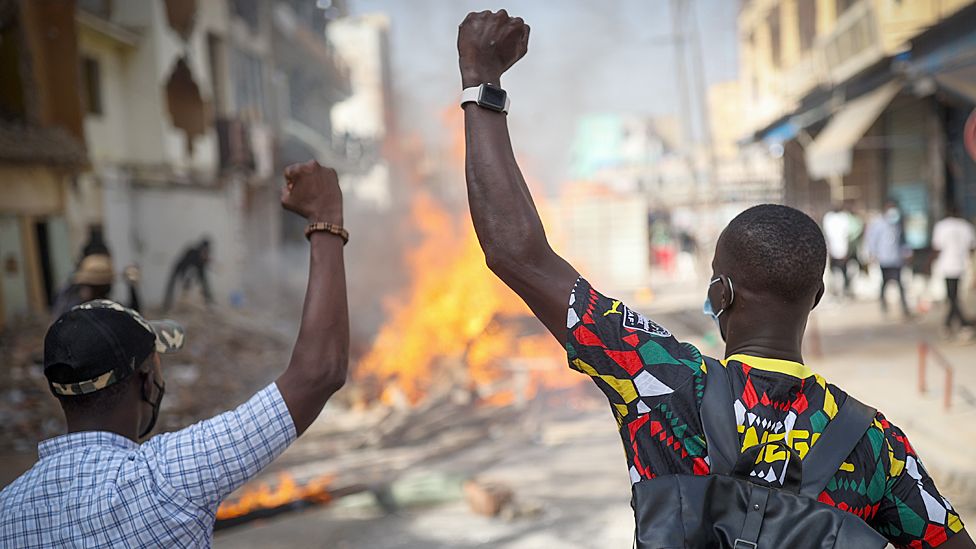-

-
-
Loading

Loading

Senegal is currently facing an identity crisis as its reputation as one of West Africa's most stable democracies is now at stake. A group of imams in the capital city, Dakar, expressed their outrage at President Macky Sall's decision to delay the presidential election until December. Ismael Ndiaye, the general secretary of Senegal's League of Imams, called the delay unacceptable and unprecedented. As Islam is the predominant religion in Senegal, influential Muslim leaders' opinions carry significant weight. The citizens of Senegal are taking to the streets in protest against the political crisis. President Sall justified the postponement by stating that time was needed to resolve a dispute over the eligibility of presidential candidates after several opposition contenders were barred. However, the protesters see this as a way for President Sall to remain in power beyond his second term, which ends on April 2. President Sall denied these accusations, claiming that his only intention is to leave the country in peace and stability. The president's critics find this statement hollow, considering his previous strong stance against then-President Abdoulaye Wade's attempt to seek a third term. Violent protests have erupted across the country, resulting in the deaths of three people, including a university student. The streets of Dakar are filled with debris from clashes between protesters and security forces. Many residents of Dakar are upset with the current situation and fear further violence. Fanta Diallo, a resident, suggested a "dead city" general strike to express their anger over parliament's decision to back the vote delay. The citizens feel that their rights are disrespected, and they want the opportunity to vote for a new president. The youth, who are frustrated with the lack of job opportunities, have been leading the protests. They also support opposition leader Ousmane Sonko, who has been excluded from the presidential race due to a defamation conviction and other legal battles. Sonko's economic policies, particularly his criticism of Senegal's close relationship with France, have gained significant support. The election delay may provide an opportunity for the ruling coalition to strengthen its chances and consider a more charismatic candidate instead of Prime Minister Amadou Ba, who is President Sall's chosen successor but seen as lacking charisma. It may also work in favor of Karim Wade, the son of a former president, who was disqualified due to his dual nationality. Government spokesperson Abdou Karim Fofana assures the public that President Sall has the best interests of the country in mind and that he is not seeking to extend his own power. However, with the strong support for Ousmane Sonko and the belief that the judiciary has been used to exclude him from the race, it is uncertain how tensions will be resolved. Law expert El-Hadji Omar Diop suggests that President Sall may choose to step down after April 2, allowing the National Assembly president to assume power and call for new elections within a few months. Future demonstrations are planned, but authorization from the authorities has not been granted yet. The citizens hope to convey their message without resorting to "dead city" strikes, as many cannot afford to stop working and provide for their families.